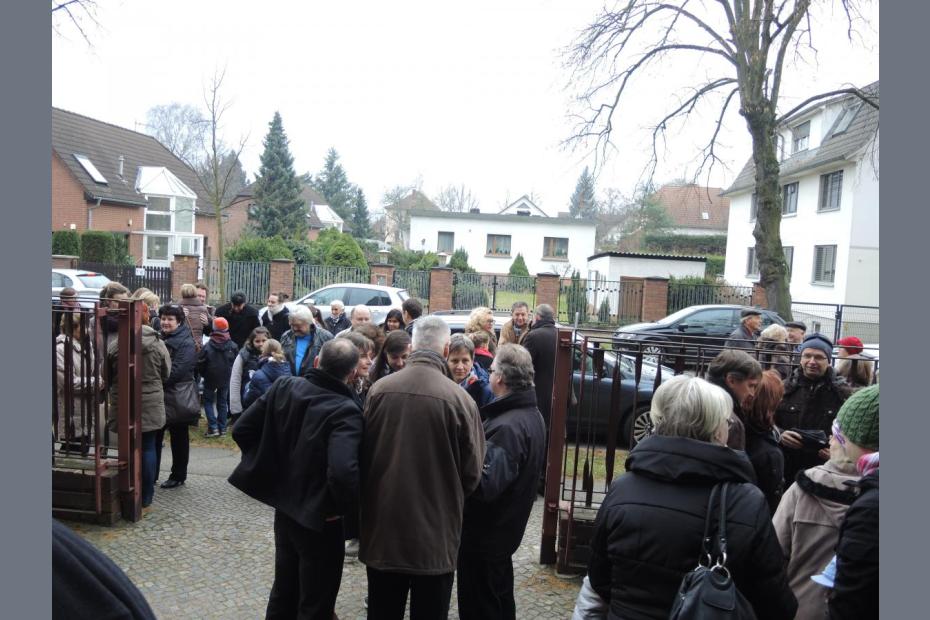While much more needs to be said about family life in Germany, several observations by interviewees in Berlin stand out.1 In general, interviewees described a culture where family is nuclear, small, and the forms and commitments of family life are fluid. As the statistics make clear, the birth rate in Germany is far below the natural replacement rate. Berlin has a large gay community, and acceptance towards gays, as well as to heterosexual cohabitation, is a widespread cultural value. Tolerance is a much repeated and valued word.
One married Berliner said, “We don’t talk about marriage as ‘this is my husband,’ but as ‘this is the person I live with for the next years and then we see what comes after. The whole concept of life has really changed.” He didn’t think this changed as much for committed Catholics, but suggested that the context for marital relationships was different than in the past.
It may be true that in all cultures people describe family important. Several Berliners noted that Sunday is still officially a family day of rest that "still has a sacred quality," though few families actually attend church then. But one comment in particular provided some comparative perspective: a Berliner who is married to a Catholic woman from northern Italy asserted about Italians, “In family terms, they would be much stronger toward family, organize their behavior toward family, much more than we do here. For us, the family is a big part, but not the center, really. It could be even so that the state is more important for us than the family... [The difference is] really incredible.”
Women play an important role in the workforce in Germany, and many aspects of social and family policy are designed to make this possible. The nation's longtime chancellor, Angela Merkel, is a woman. Still, there are pay inequities equivalent to those in the rest of the developed world. East Germans are said to be more insistent on gender equality.
Catholics in Berlin pointed to ways that the culture proved difficult for them, and equally to ways they had adapted. A young Catholic woman from Ghana pointed to the prevalence of cohabitation before marriage in Berlin as a significant challenge for her, one that had led to the diminution of friendships.
Filipinos and Africans noted that while they came from, and might have themselves have chosen to have large families in their home countries, this didn't seem wise in Berlin, where few people had extended family networks to care for children. Space is also at a premium, they pointed out, and while there is good daycare, school time does not often coincide well with work hours, meaning a parent had to be available to pick up and watch children.
- 1The articles in the sections on Berlin are based primarily on formal interviews with 16 Berlin Catholics (both natives and immigrants) and one expert who belonged to the Evangelical church, all conducted in Berlin in December 2014, primarily in English.
